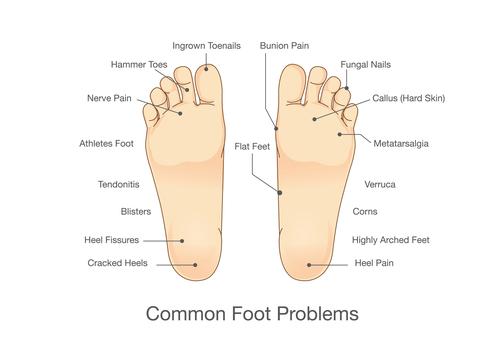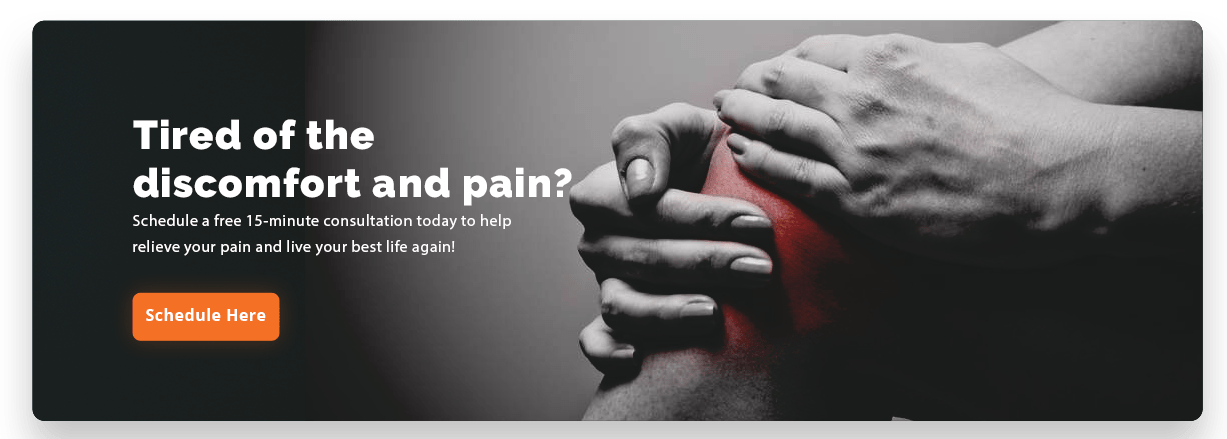“If you can’t fly, then run, if you can’t walk run, then walk, if you can’t walk, then crawl, but by all means keep moving.” – Martin Luther King Jr.
Most of us don’t have the opportunity to fly, but many of us do like to run. For others, running doesn’t excite us as much as does hiking and taking long walks. And most people tend to take their ability to simply walk for granted.
Unless we are suffering from foot pain.
Alleviating Minor Foot Pain
Something as seemingly minor and innocuous as an ingrown toenail or a blister can effectively cripple us from the pain. But there are several common and potential types of foot pain. While some are mild and temporary, other types of foot pain are chronic and debilitating.
Foot pain can not only restrict your activities, it can also affect your mood and impact your quality of life. If you are suffering from chronic foot pain, finding an effective treatment can be a challenge.
Treating the pain in your feet can help relieve the discomfort. An article from Harvard Medical School offers these suggestions,
“Pain is a symptom common to many foot conditions, and pain medications are a good solution for most types of foot pain. You also can try other approaches, either before resorting to pain relievers or in conjunction with them. For example, you can try an ice pack or a warm foot soak before reaching for the pain pills. In general, if your skin feels warm to the touch (indicating that your foot is inflamed and possibly swollen), apply ice. Don’t apply warmth to an inflamed area because it will only increase the blood flow and make the inflammation worse.”
Depending on the actual cause of your foot pain, certain over-the-counter (OTC) treatments can be enough to cope with the discomfort.

You have a few different options when it comes to OTC medications. Some are topical, which means they are applied to the skin. Others are taken in pill form and work systemically. Here are the three main medication classes and some details on each:
Analgesics. These are the more common pain relievers, such as acetaminophen, Tylenol is a popular brand. These drugs which relieve pain, but not relieving inflammation. Be careful if you drink alcohol regularly since acetaminophen combined with alcohol can cause liver damage.
Topical analgesics. These treatments come as lotion, cream, or gels. When applied on the skin they penetrate inward and can relieve some forms of mild foot pain. Those with menthol, eucalyptus oil, or turpentine oil work by distracting the nerves with a different sensation. Some lotions have salicylates, which the same ingredient in aspirin. A third type blocks substance P, a neurotransmitter that is believed to transmit pain signals to the brain.
Nonsteroidal anti-inflammatory drugs (NSAIDs). Well known NSAIDs include aspirin, ibuprofen, and naproxen. Common brands are Bayer, Motrin and Aleve. Taking an NSAID just for foot pain should be done with a low dosage for a limited amount of time. Because of the anti-inflammatory quality of NSAIDs, these are better suited for conditions that involve inflammation as well as pain, such as sprained arch or Achilles’ tendinitis.
According to the Harvard Medical School, you can feel the pain-relieving effects of NSAIDs almost immediately, but you won’t experience the full anti-inflammatory effects until enough of the medication builds up in your bloodstream. But high doses for long periods of time should be avoided unless prescribed by your doctor.
Be aware that all pain relievers, especially NSAID medications, have a variety of side effects, so it is important to discuss any health risks with your doctor when considering their regular use.
Foot Pain Medical Treatments
There are variety of additional foot pain treatments that can be administered by your health care provider. Among these are some prescription medications that be used for chronic or severe foot pain. These include some opioids, which, considering the opioid addiction epidemic in our country, should be only considered as a last resort.
Opioid analgesics. Prescription drugs such as codeine contain opioids and can be useful for severe pain. These work by blocking certain chemical pathways that send pain signals through the central nervous system.
Nerve pain medications. Nerve damage pain may not respond well to opioids so other medications that can be used include an antidepressant, amitriptyline, which increases the levels of brain chemicals that ratchet down pain signals, and an anticonvulsant, gabapentin, which is believed to interfere with pain nerve signaling, as well.
COX-2 inhibitors. Certain prescription NSAIDs known as COX-2 inhibitors relieve pain and inflammation. While they may be less problematic for gastric ulcers and bleeding issues common with OTC NSAIDs, it still has side effects.
Corticosteroids are synthetic forms of natural hormones that are normally produced by the adrenal glands. Corticosteroids are given as pills or through injections to decrease inflammation and thus relieve pain.
Nerve blocks. A nerve block is an injection using a combination of medications that numb a specific nerve to prevent pain signals from reaching the brain. These can be temporary or permanent.
If you are experiencing chronic or severe foot pain, it’s important to see your health provider for an evaluation. This is the first step to feeling well and getting back to your usual activities. With proper diagnosis and an effective therapy plan, you’ll be able to do just that!
Pain and Performance Solutions for Chronic or Severe Foot Pain Treatment
At your first appointment here at Pain and Performance Solutions, we will learn all we can about your present pain and condition, along with any history of discomfort. Treating and relieving foot pain starts once we understand where and how your pain started.
A full examination will help us determine which form of treatment is best suited to get you on your road to recovery. Your trust in us is key, as is your honesty. Ultimately, getting your body healthy and working properly is the only way to achieve total recovery. So, don’t hesitate to reach out. We are here to help and will answer any questions that you may have.
We will conduct a full examination to help us determine which form of treatment is best suited to put you on your road to recovery. Because our bodies will compensate for pain to allow us to function during our day, the pain can shift around and lead to other forms of pain.
Our goal is to work through the sequence of pain and dysfunction in order to get your body healthy and working properly and to achieve total recovery. Don’t hesitate to reach out. We are here to help and will answer any questions that you may have. You can reach us at (707) 636-4404 or by filling out our online contact form


